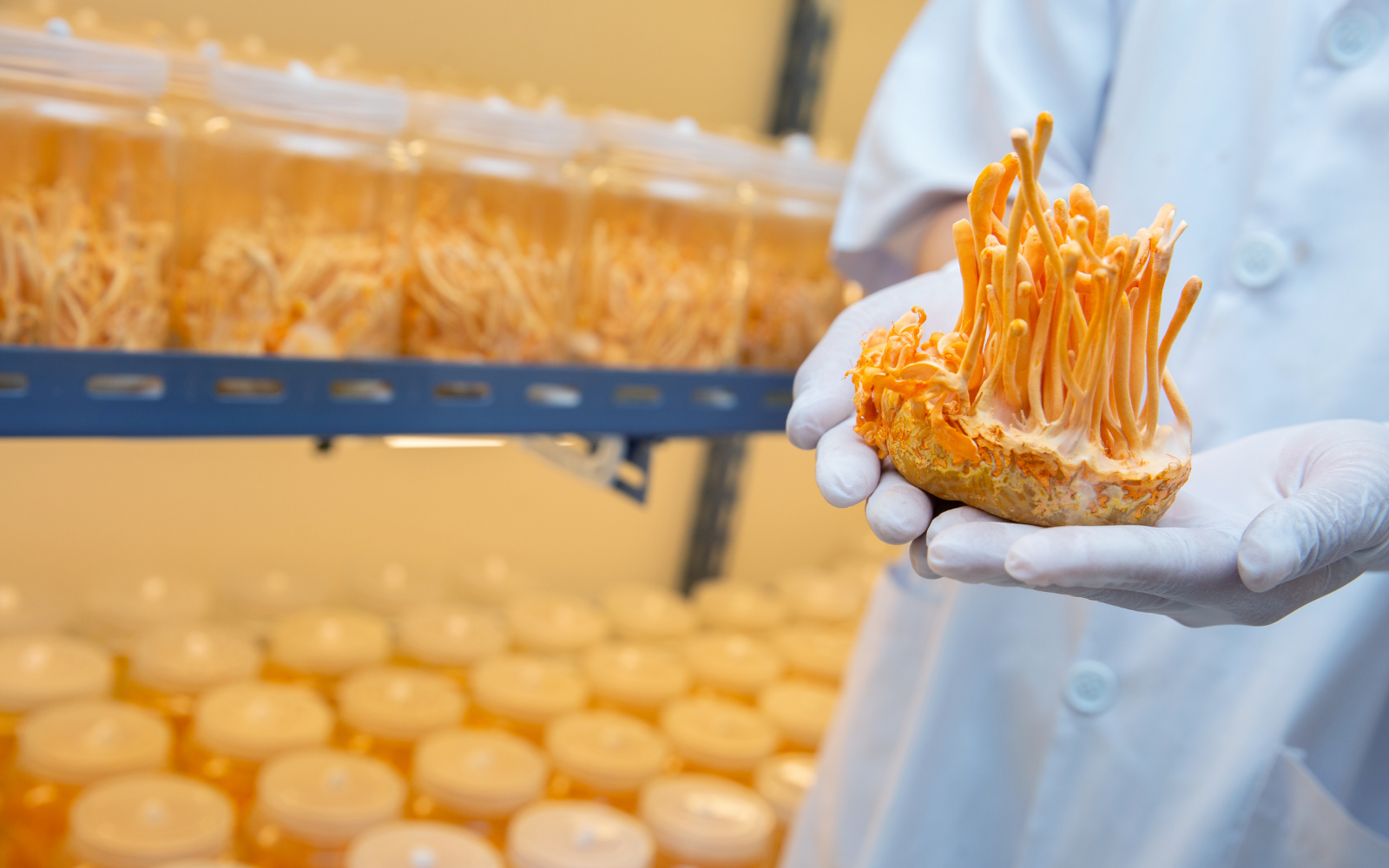Are you always getting sick? Trying to figure out why every time there's a bug going around you're the first to get it- and take the longest to recover? Of course, there is no quick fix to getting a bullet-proof immune system. But- there are a number of ways that you might be wrecking your immune system without even knowing it.

1. Too Much Stress
We all deal with stress. From work deadlines to family drama to financial headache, our world is a flurry of difficult situations. While it’s impossible to always control the situations you’re faced with, you can control your reaction to stressful triggers – and your immune system will thank you. Stress can take an extremely dangerous toll on the immune system. Psychological stress has been proven time and again to cause immunosuppression (reduced immunity), leading to the onset or worsening of physical conditions. For instance, ongoing chronic stress is believed to cause a constant presence of cortisol in the bloodstream, which in turn triggers the body to elicit a white blood cell attack on the presence of the cortisol – ultimately causing white blood cells throughout the body to “downgrade” their cortisol receptors. (1) This environment eventually leads to inflammatory responses within various areas of the body, causing chronic conditions like multiple sclerosis, rheumatoid arthritis, allergies, or heart disease. What are some ways to combat stress and boost immunity? Working on a peaceful, perspective-based reaction to stressors is important, and can be accomplished through meditation, talk therapy, or with a spiritual approach. Of course, anticipating (and avoiding) known stressors is a preventative measure, but of course not always possible.
2. Not Enough Sleep
For many, stress and difficulty sleeping go hand-in-hand. If you are in this category, keep in mind that missing out on restorative slumber can lead to an unwanted immune response – and possibly certain avoidable health conditions. (2) Sleep recommendations vary depending on age, activity level, and general overall health. You’ve probably heard that eight hours per night is the gold standard – and it may be for many folks. While some people feel fine on 6 hours, others need up to 10 to feel rested and energized. Listen to your body and strive to find a sleep schedule that promotes your overall feeling of peace and comfort. Chronic lack of sleep can reduce your immune system’s functionality, leading to illness – particularly due to viruses or bacteria. During sleep cycles, your immune system releases an extra dose of cytokines into the bloodstream to stave off viruses or inflammation. If you’re missing zzz’s, you’re missing these – so take steps to improve restful sleep, such as:- Limit screen time (phones, tablets, television) before bed
- Avoid caffeine in the 2+ hours before bedtime
- Set a regular bedtime each day, and stick to it (even on weekends)
- Create ideal conditions for sleep, including darkness and a cool temperature.

3. Excessive Sugar Intake
Got a sweet tooth? You’re certainly not alone. From sweetened coffee to snacks to even sauces and marinades, sugar is absolutely everywhere. Not surprisingly, many researchers have linked our culture’s gratuitous glucose consumption to the onset of immune system disorder – and the effects can be extremely problematic. While regular intake of some natural sugar is necessary to support the body’s metabolic processes, too much refined sugar can lead to the onset of obesity – and resulting correlated health problems. From Type 2 diabetes to inflamed joints, overconsumption of the sweet stuff can depress the body’s natural immune responses and leave you vulnerable to illness. Natural immune boosting foods include mushrooms (of course), garlic, green leafy vegetables, honey, almonds and many kinds of fruit. Also, supplements like mushroom extracts and zinc are known for their immune-boosting properties.
4. Physical Inactivity
Regular physical activity is a vital component to overall health – and supports a well-functioning immune system. For one, exercise is known to help relieve the effects of stress, which is discussed above as a major contributing factor to suppressed immunity. Also, exercise can help counter-balance over-indulgence in starch and sugars. Does exercise (or lack thereof) directly impact the immune system? Researchers seem to think so – including those that work routinely studying the correlation of elite athletic training and overall health. While intense, daily training can actually increase the instances of illness in some athletes, moderate exercise (for the rest of us) is known to enhance white blood cell counts and protect against upper respiratory issues. (3)
5. Smoking
Just don’t do it. We know you know! Without going into the gamut of damage cigarettes can cause to your lungs, throat, mouth, and heart, smoking can also create disorder in your immune system – exacerbating the inevitable upper and/or lower respiratory system infections that tend to impact smokers at a higher rate than the general population. Further, white blood cell counts in smokers tend to remain indefinitely heightened, meaning your immune system feels constantly under attack – a status that can lead to heart attack and stroke. Further, smokers tend to take longer to heal from cuts and wounds due to the decreased level of oxygen in the bloodstream (and constricted blood vessels). And if you need one last reason, the tar in nicotine (which makes its way to the bloodstream), confuses the body’s immune system, making smokers more susceptible to inflammatory diseases (multiple sclerosis, rheumatoid arthritis), or even cancer. Also, in case you were curious, researchers are continuing to study the effects of marijuana use on bodily functions including immunity. (5) Currently, positive medicinal effects of marijuana use are confirmed within the context of many major mental health conditions, epilepsy, and glaucoma. However, ongoing research into the interplay between cannabis and immunity suggests the former may suppress the body’s ability to fight off infection by decreasing host resistance to microbial attack. (6)
6. Too Much Alcohol
The impact of alcohol consumption on immunity depends on several factors, including the frequency of consumption, amount, and general overall health. Of course, alcohol has been used for centuries for its calming and medicinal effects. However, too much of a good thing can be, well, very bad. Mild to moderate alcohol consumption may have a positive impact on the immune system – and by moderate, we mean a drink or two here and there. Binge drinking episodes (4+ drinks per session) or excessive alcohol consumption can cause the opposite effect, suppressing the immune system and inviting the invasion of harmful infections and illness. (7) Moreover, research suggests that wine or beer (known as polyphenol-rich drinks) may be a bit safer for the immune system than hard liquor.
7. Not Enough Water
Adequate water consumption is irreplaceable when it comes to overall health. Emerging research shows that chronic dehydration can be disastrous for the immune system, primarily because the body will begin to allocate its water resources toward more vital metabolic functions in order to stay alive – thereby starving the immune system in the process. (8) Naturally, this leads to increased risk of infection and illness, as well as a predisposition to inflammation and autoimmune conditions. Dehydration can be an extremely serious, even fatal, condition – particularly in children and the elderly. Along with the other immune-boosting tips above, remember to keep your body hydrated throughout the day with plenty of filtered water.
Supplements for Optimal Health
Here at FreshCap Mushrooms, we are all about full-body wellness. Which is why we are always trying to educated everyone about the amazing healing properties of the mushrooms available through our store. Aside from medicinal mushrooms, quality vitamin supplements can offer immune-boosting power. For example, zinc is widely used to both prevent oncoming colds and shorten the duration of the virus. Other popular immunity-boosters include both Vitamin B6 and Vitamin E, both of which help the body protect against infection. Lastly, Vitamin C is considered one of the most well-known supplements to fortify the body and can be taken in pill form or by an increased intake of citrus fruits like oranges and tangerines. For another incredibly natural approach, there are quite a few foods that boost your immunity as well. Honey and ginger are both excellent options to help support your immune system. Keep your immune system healthy and thriving. Add some FreshCap Mushrooms to the list above, and you’ll have a great chance at feeling great day in and day out!


